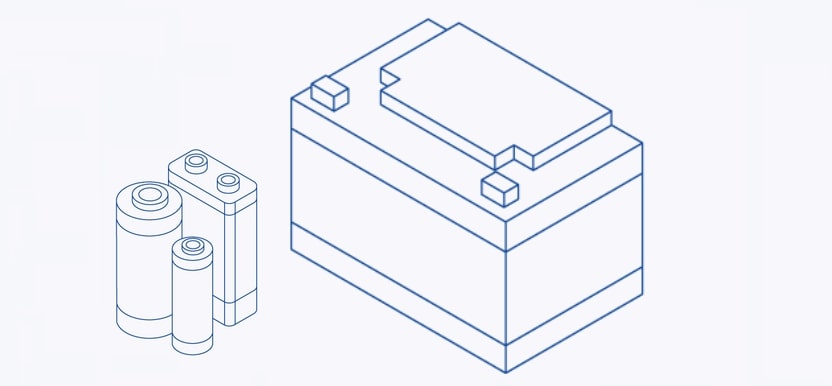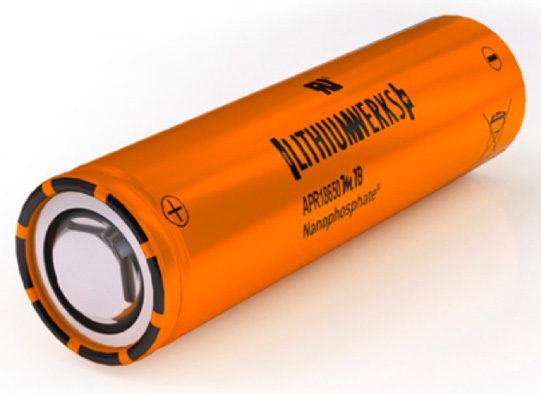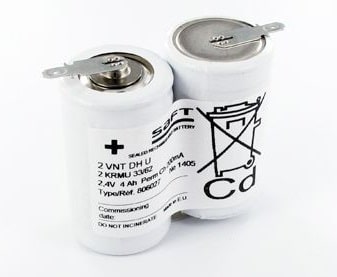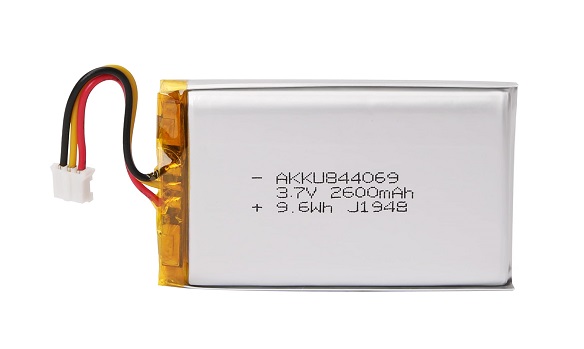With a century of experience in battery technology, Elfa Elementenfabriek has emerged as a pioneer in secondary battery solutions. By focusing on innovative rechargeable technologies, it meets the growing demand for energy solutions that are both environmentally friendly and cost-effective. In doing so, Elfa demonstrates its commitment not only to progress and quality, but also to recognising the importance of sustainability in modern industry.

Elfa has a wide range of rechargeable batteries from A-brands such as Panasonic, Saft, Varta, GP Batteries, and Tadiran.

These brands are known for their reliability and deliver quality which means you can count on durable performance for various applications. Many of these brands can be supplied directly from stock. Our team is ready to assist in finding the perfect match for specific needs.
When investing in high-quality rechargeable batteries, it is essential to look beyond the initial purchase cost. Total Cost of Ownership (TCO) includes all costs over the lifetime of the batteries, including direct costs such as purchase, electricity use for charging, and any maintenance and replacement costs.
TCO also takes into account indirect effects on these costs, such as the impact of charging speed, life cycle and reliability.

By taking these factors into account, informed choices can be made that are economically beneficial in the long run. Durable batteries with a longer lifespan reduce the need for frequent replacement, providing both cost savings and environmental benefits.
Lithium-ion batteries are versatile and efficient, ideal for everyday use in consumer electronics, as well as for more powerful applications such as electric vehicles. Their low self-discharge and high charge rate make them suitable for a wide range of products, while their longer life reduces the Total Cost of Ownership. Customers choose Li-ion when durability, weight and long-term efficiency are important.
The two main advantages of a Li-ion battery are:
The two main disadvantages are:
Lithium iron phosphate (LiFePO4) batteries are an excellent choice for high-performance, long-term power needs in electronics. These batteries are often used in applications such as emergency power supplies and portable electrical devices, where safety, longevity and reliability are essential.
Customers choose LiFePO4 batteries when devices require stable operation and consistent power, such as medical equipment and high-end audio-visual systems.

Battery of Lithium Werks
The two main advantages of LiFePO4 batteries are:
The two main disadvantages are:
Nickel-cadmium (NiCad) batteries are distinguished by their excellent ability to withstand high discharges and their ability to perform in a wide range of temperatures. They are widely used in power tools and other devices that require robustness.
Their long life and reliability make them suitable for applications where durability is a requirement. Customers choose NiCad batteries because of their proven track record of reliability and consistency under demanding conditions.

ArtsEnergy VNT DU NiCd pack 2,4V 4Ah SBS faston right
The two main advantages of NiCad batteries are:
The two main drawbacks are:

Eric van de Laar
Sales & Business Unit Manager
Do you have a question?
Feel free to email or call me!
Nickel metal hydride (NiMH) batteries are a more environmentally friendly alternative as they contain no heavy metals, unlike NiCad batteries. Because of their higher capacity and less memory effect, they are popular in various types of electronics, ranging from phones to digital cameras. Customers prefer NiMH for applications that require a higher energy density while creating less environmental impact.
The two main advantages of nickel metal hydride (NiMH) batteries are:
The two main disadvantages are:
Known for their light weight and flexible form factors, LiPo batteries offer superior energy density, making them essential for minimising weight in portable devices. These batteries can charge quickly and handle higher discharge rates, making them ideal for advanced applications such as drones, RC vehicles, and portable electronics such as smartphones and laptops.
 LiPo battery example
LiPo battery example
The two main advantages of lithium polymer (LiPo) batteries are:
The two main drawbacks are:
As a battery specialist, Elfa offers comprehensive advice and expert guidance on selecting the right battery solutions. With in-depth knowledge of various battery technologies and applications, Elfa helps to find products that seamlessly match specific requirements.
Whether powering small devices or supporting large industrial machines, Elfa’s expertise ensures access to the most efficient and cost-effective battery solutions.
Assortment of rechargeable batteries
As battery specialists, we are happy to answer all your questions! Of course, you can also take a look at our product range to get an overall view of the different types of batteries from Elfa. For questions or more information, please fill in the contact form below. We will contact you as soon as possible.